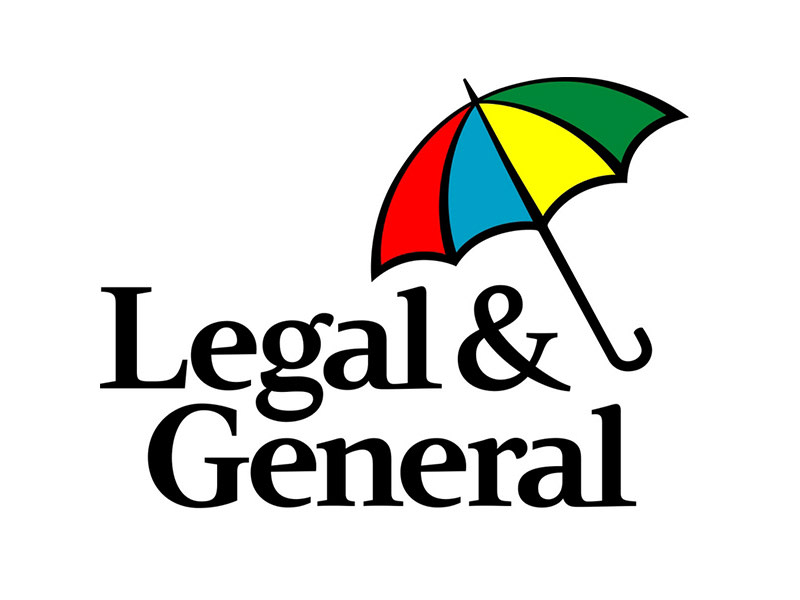Legal & General is one of the UK’s leading providers of passive funds
We think this fund is an excellent option for accessing the UK’s largest companies
It’s a simple, low-cost way to track the FTSE 100 Index
This fund features on our Wealth Shortlist of funds chosen by our analysts for their long-term performance potential
How it fits in a portfolio
The Legal & General UK 100 Index Trust invests in the 100 largest companies in the UK. While the FTSE 100 is a UK index, many of the companies also earn money from selling their goods and services overseas. Investors will therefore be indirectly investing into foreign economies as well as the UK.
An index tracker fund is one of the simplest ways to invest and we think this fund could be a great low-cost starting point for an investment portfolio aiming to deliver long-term growth. It could be a good addition to a more global portfolio or could diversify a portfolio focused on smaller companies or other investments such as bonds.
Manager
Legal & General has been running index tracker funds for over 30 years and is one of the largest providers of tracker funds. That means it’s got the resources and expertise to track indices as closely as possible, and the scale to keep charges to a minimum.
Each index fund at Legal & General has a primary and secondary manager, though in practice the team as a whole helps to manage each fund. Jason Forster is responsible for UK fund management and is the primary manager for this fund. He previously worked on the firm’s index fund management systems before becoming a fund manager in 2002. Konstantins Golovnovs is the secondary manager for this fund. He joined Legal & General’s graduate scheme in 2010 and worked his way up to become a fund manager.
Process
This fund tracks the performance of the UK’s largest 100 companies, as measured by the FTSE 100 Index. It aims to invest in every company, and in proportion with each company’s weight in the index. This is known as full replication and should help the fund track its benchmark closely.
It’s heavily weighted to the financials, consumer staples and health care sectors which made up 19.6%, 15.0% and 13.9% of the fund respectively at the end of April 2024. The top 10 companies account for nearly half of the fund so have a big impact on overall performance. This is determined by the underlying index the fund is tracking.
In any index tracker fund, factors like withholding taxes, dealing commissions and spreads, and the cost of running the fund all drag on performance. To reduce the tracking difference between the fund and the index, the team keep trading to a minimum which helps to reduce costs.
Legal & General cross trades shares internally across all its own funds when there’s an index rebalance. This provides a saving on Stamp Duty, which is a government tax that’s paid on the purchase of UK listed shares. Stamp Duty is one of the biggest contributors to the tracking difference between the fund and the index so trading efficiently like this helps to keep the fund’s performance close to the index.
Legal & General is a conservative tracker fund manager. For example, it doesn’t lend the investments in its index funds like some other companies do.
Culture
Legal & General has developed its passive fund range over the last three decades. The company manages around £482bn in tracker funds, allowing it to offer a wide range of index-tracking options.
Legal & General has built a team of experienced passive fund specialists and is innovative too. If an index doesn’t exist for a sector the team would like to track, they’ll often work with index providers to create one so they can track it.
The team running this fund works closely with various risk departments across the business. We believe this provides support and adds challenge where appropriate.
Employees are also encouraged to participate in Legal & General’s sharesave scheme which should encourage them to be more engaged with the growth of the company. In addition, a portion of portfolio managers’ bonuses are invested into the funds they manage. By doing this, their interests are further aligned with the investors in the fund.
ESG Integration
Legal & General Investment Management (LGIM) is predominantly a passive investor, but we are impressed with the extent to which it has woven Environmental, Social and Governance (ESG) factors into its culture. Being a mostly passive fund house hasn’t stopped it being innovative when it comes to ESG.
In May 2019, the firm launched its ‘Future World’ range of funds. These funds track indices that increase investments in companies that score well on a variety of ESG criteria – from the level of carbon emissions generated, to the number of women on the board and the quality of disclosure on executive pay. They also reduce exposure to companies that score poorly on these measures.
In 2019, LGIM established its Global Research and Engagement Platform, which brings together representatives from the investment and stewardship teams, in order to unify their engagement efforts. Engagement is conducted in line with the firm’s comprehensive engagement policy. A detailed description of the firm’s engagement and voting activity (including case studies) is available in its annual Active Ownership report.
LGIM’s Stewardship team is responsible for exercising voting rights globally, both for LGIM’s active and index funds. Voting decisions are publicly available through a tool which allows a user to search for any company to find out how LGIM voted.
The Legal & General UK 100 Index Trust is a passive fund designed to track an index that doesn’t specifically integrate ESG analysis or exclude companies deemed to be sin stocks, like those involved in tobacco or weapons.
Cost
The fund has an annual ongoing annual fund charge of 0.10%, but we've secured HL clients an ongoing saving of 0.04%. This means you pay a net ongoing charge of 0.06%. We believe this is good value when compared with other FTSE 100 tracker funds. Our platform charge of up to 0.45% per year also applies, except in the HL Junior ISA, where no platform fee applies.
Performance
The fund has tracked the FTSE 100 Index closely over the long term. In the last 10 years, the fund has risen 74.71%* versus 76.94% for the index. As is typical of tracker funds, it’s lagged the benchmark because of the costs involved in running the fund. However, the techniques used by the managers have helped to keep performance tight to the index. Remember, past performance isn’t a guide to future returns.
Over the last 12 months, the fund has done a good job of tracking the FTSE 100, returning 14.32% compared to 14.50% for the index. Financials companies in the UK have contributed the most to the fund’s performance as banks have profited from the increased cost of borrowing due to higher interest rates.
Industrials also positively contributed to performance over the year. Rolls Royce, a multinational aerospace and defence company, has been the lead driver of gains in the UK, rising over 200%. As a maker of airline engines, it’s been able to benefit from the return to travel since the Covid pandemic. Energy companies also performed well, as the conflict in the Middle East has led to a surge in global oil & gas prices and inflation.
On the other hand, utilities detracted from the fund’s performance during this time. National Grid, the UK’s electricity and gas supply operator, has been affected by the ongoing cost of living pressures and the recent surge in energy costs. As some customers have struggled to pay their energy bills, it’s put pressure on regulators to protect them from price increases. This eats into utilities’ profits and could impact future growth.
Given Legal & General’s size, experience and expertise running index tracker funds, we expect the fund to continue to track the index closely in the future, though there are no guarantees.
Annual percentage growth
May 19 – May 20 | May 20 – May 21 | May 21 – May 22 | May 22 – May 23 | May 23 – May 24 | |
|---|---|---|---|---|---|
Legal & General UK 100 Index | -11.06% | 18.17% | 12.05% | 2.24% | 14.32% |
FTSE 100 | -10.56% | 18.32% | 12.24% | 2.35% | 14.50% |


